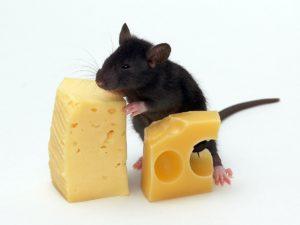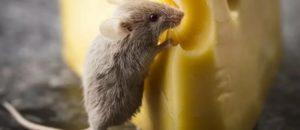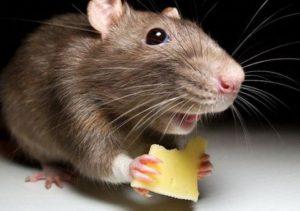Do mice like cheese: dispelling myths
Almost every small child knows that mice are very fond of cheese and are ready to do anything to get the desired delicacy. However, scientists who ask this question come to the conclusion that mice cannot like cheese and there are good reasons for this.
Content
Do mice really like cheese?
The question of the love of mice for cheese remains relevant to this day. In 2006, he seriously interested scientists at the University of Manchester. Their studies have shown that mice are not particularly attracted to cheese. There may be several reasons for such indifference of rodents to this product:
- product preferences. Animals of this species mainly feed on plant foods. For example, various vegetables, fruits, nuts and cereals;
- strong smell of cheese. The scent of these rodents is very well developed and the pronounced smell of some varieties of cheese even repels them;
- the question of evolution. For most of its existence, the "mouse family" had no idea what cheese was, and in the wild, rodents do not encounter it.
Another experiment
After such results of the study, the British sanitary organization Pest Control UK conducted its own experiment.
Fulfilling their new order for deratting, employees placed three mousetraps with different baits in the building, at a short distance from each other. Pieces of apples, chocolate and cheese were used as baits. At the same time, the location of the traps changed daily.
6 weeks after the start of the experiment, the following results were summed up: only one mouse fell into the trap with chocolate, not a single mouse fell into the trap with an apple, but as many as 22 rodents coveted the cheese.
The painful question again remained unresolved. But, it is worth noting that mice are omnivores and despite their preferences, hungry rodents, of course, can eat cheese and eat it.
Where did the judgment about the mouse's love for cheeses come from?
Back in the XNUMXst century AD, the Roman philosopher Lucius Annaeus Seneca mentioned in one of his works:
“Mouse is a word. Let the Mouse eat cheese, so the word eats cheese... No doubt, I should be careful, otherwise one day I will catch the words in my mousetrap, or, if I am not careful, the book may swallow my cheese.
From this follows the conclusion that the connection between mice and cheese originates long before our era. At the moment, there are two main theories about the origin of this myth.
Features of cheese storage
One of the most common versions of why people think mice are crazy about cheese is the way it is stored. In ancient times, grain, salted meat and cheese were stored in the same room, as they were considered essential products.
People packed salted meat and grain tightly and protected it from a possible attack by rodents, but cheese needed good ventilation and therefore became easy prey for pests.
Ancient mythology
The second version was put forward by Professor David Holmes. The scientist suggested that this misconception could be based on one of the ancient myths or legends, because mice were often mentioned in ancient mythology.
In particular, the ancient Greek god Apollo was called "Apollo Sminfey" which literally translates as "Apollo Mouse" and people kept white mice under the altar of this god. At the same time, the son of Apollo, Aristaeus, according to legend, taught people how to make cheese, passing on to them the knowledge received from the Libyan nymphs.
Comparing these facts, we can assume that the connection between mice and cheese originated due to ancient Greek mythology.
Why is this myth so popular in today's world?
Cartoonists often use the image of cheese and mice. The fluffy muzzles of the rodents that peep out of the holes in the pieces of cheese look very cute. Most likely, a mouse depicted next to some grains would not have produced such an effect. That is why mice continue and most likely will continue to be drawn inseparably with this product.

Cartoon hero.
Conclusion
All the above studies do not have any significant evidence, and therefore there is still no definitive answer to this question. Most likely, the debate on this topic will continue for a long time, and most people, thanks to the multipliers, will still believe that the favorite delicacy of mice is cheese.
Previous

